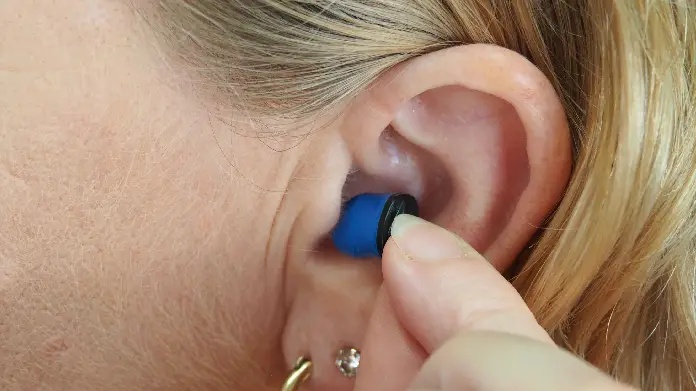Many Indiana residents experience some degree of hearing loss. The Social Security Administration (SSA) has some programs that provide disability benefits to people with permanent impairments such as hearing loss.
Indianapolis Social Security disability claimant’s with hearing loss may qualify for Social Security Disability Insurance (SSDI) or Supplemental Security Income (SSI) benefits if they meet the criteria required by the SSA in the SSA’s “Listing of Impairments”.
To determine whether you qualify for such benefits, the SSA’s criteria for hearing loss can be found in the SSA’s “Listing of Impairments,” Section 2.0, Special Senses and Speech.
There are two different listings for hearing loss on the Social Security Administration’s Listing of Impairments. In Section 2.10, criteria is defined for people who have hearing loss and do not have a cochlear implant.
Social Security Disability: Claim Denied?
Need Help With Application?
Don’t get frustrated! At our law firm, it’s our mission to professionally represent our disabled clients, as well as their families, and work hard to get you the benefits you deserve.
or Email us.
In Section 2.11, criteria is defined for disability applicants who have had a cochlear implant.
What evidence should a disability claimant provide the SSA to help win their disability claim?
The SSA will need evidence showing that you have a medically determinable impairment that causes your hearing loss and audiometric measurements of the severity of your hearing loss.
Generally, the SSA requires both a complete otologic examination and audiometric testing to establish that the claimant has a medically determinable impairment that causes the hearing loss.
Once the SSA has evidence that the claimant has a medically determinable impairment, the SSA can use the results of audiometric testing to assess the severity of the hearing loss without another complete otologic examination. Test scores together with any other relevant information about your hearing may help support your disability claim.
It’s important to know the SSA’s requirements in order to successfully submit medical evidence in support of your claim. The SSA requires that the complete otologic examination must be performed by a licensed physician (either medical or osteopathic doctor).
This exam must include the following:
- medical history,
- description of how the hearing loss affects the claimant,
- the physician’s description of the appearance of the external ears,
- evaluation of the tympanic membranes, and
- assessment of any middle ear abnormalities.
Audiometric testing must be performed by, or under the direct supervision of, an otolaryngologist or an audiologist.
When a claimant does not have a cochlear implant, the SSA requires an audiometric test to support their disability claim.
What audiometric testing does the SSA need when the claimant does not have a cochlear implant?
According to the SSA’s listing of impairments, the SSA generally needs the following testing when a claimant does not have a cochlear implant:
- pure tone air conduction and bone conduction testing,
- speech reception threshold (SRT) testing, and
- word recognition testing.
This testing must be conducted in a sound-treated booth or room and each ear must be tested separately. You must not wear hearing aids during the testing. To determine whether the disability claimant’s hearing loss meets the air and bone conduction criteria in Section 2.10, the SSA will average the air and bone conduction hearing thresholds at 500, 1000, and 2000 Hertz (Hz).
What audiometric testing does the SSA need when the claimant does have a cochlear implant?
The SSA will consider you to be disabled until 1 year after initial cochlear implantation. After that period, the SSA may require word recognition testing performed with any version of the Hearing in Noise Test (HINT) to determine whether your impairment meets this listing.
This testing must be conducted in quiet sound field. Your implant must be functioning properly and adjusted to your normal settings. The sentences should be presented at 60 dB Hearing Level (HL) and without any visual cues.
Some symptoms and or diseases that may accompany the hearing loss may include the following:
- Difficulty with word recognition,
- Vertigo (disturbances in balance) causing hallucinations of motion, dizziness, nausea, light-headedness, confusion, and several other side-effects, or
- Ménière’s disease which is characterized by unpredictable and irregular attacks of vertigo, tinnitus, and fluctuating hearing loss.
Social Security disability claimants may want to provide medically acceptable imaging to support the evaluation and diagnosis of their hearing loss. Such imaging may include, but not limited to, x-ray imaging, computerized axial tomography (CAT scan) or magnetic resonance imaging (MRI), with or without contrast material, myelography, and radionuclear bone scans.
There are some risk factors that may be the cause of your hearing loss. Aging is the most common reason that people experience some degree of hearing loss. A person’s heredity may also come into play.
Some genetic factors may make a person more susceptible to hearing damage. Farming, factory work, or other jobs that require noisy heavy machinery may also cause ear damage.
Other loud noises such as firearms, fireworks, headphones, or motorcycles may damage your ears also.








